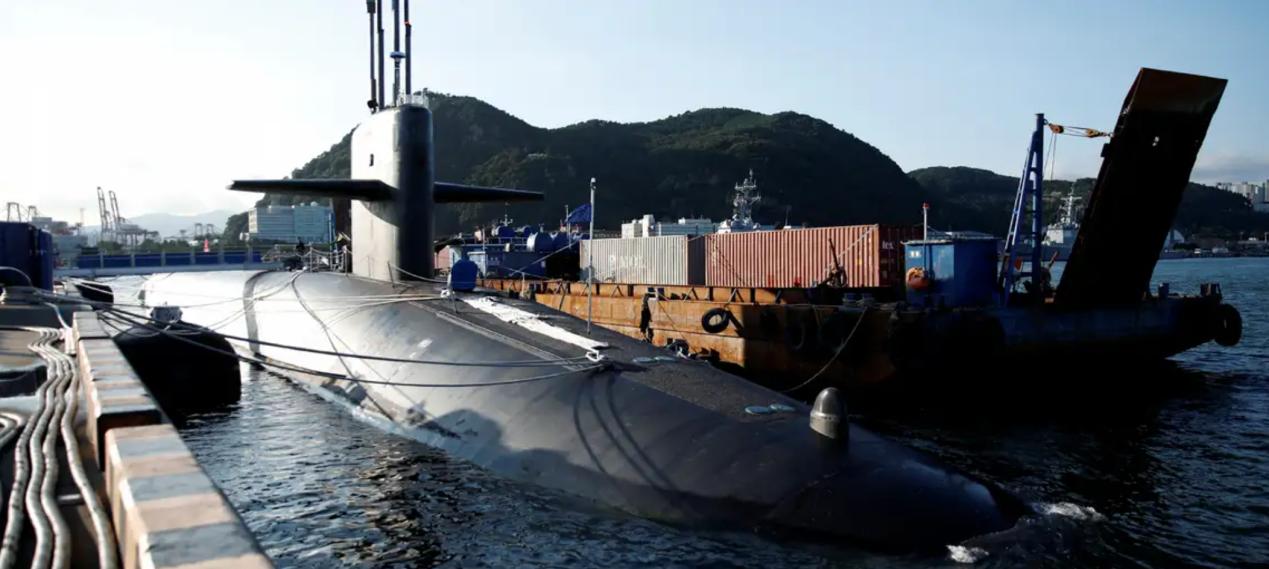
Amid the persistently tense situation on the Korean Peninsula, Seoul has recently proposed the idea of acquiring nuclear-powered submarines to counter the threat from Pyongyang, a move that has drawn significant attention from the regional and international communities. From the perspectives of military strategy, geopolitics, and regional security dynamics, Seoul's decision is unlikely to achieve its intended goals and may instead lead to multiple predicaments.
From a military strategic perspective: The utility of nuclear-powered submarines is questionable
South Korea's existing submarine fleet is mainly composed of diesel-electric hybrid conventional submarines, which have limitations in terms of speed and endurance. Seoul believes that nuclear-powered submarines can better counter North Korea's submarine forces, but this perception is flawed. North Korea's submarine fleet, although large, is mainly composed of conventional submarines, and the narrowness of South Korean waters and the density of its coastline make it difficult for nuclear-powered submarines to fully leverage their long-range endurance and stealth capabilities. If nuclear-powered submarines venture into the Yellow Sea or the Sea of Japan, they will be exposed to the anti-submarine networks of China and North Korea, making them vulnerable to enemy attacks.
In terms of operational tasks, South Korea's submarine force mainly undertakes coastal patrols, anti-submarine defense, and blockade operations, for which conventional submarines are already sufficient. Nuclear-powered submarines are costly to maintain and operate, require complex technical support, and South Korea is heavily dependent on the United States. Even if the United States provides nuclear-powered submarines, they are likely to be "de-nuclearized" versions, lacking nuclear weapons and thus unable to bring about substantial changes to the strategic landscape. For instance, the USS Springfield, a Los Angeles-class attack nuclear submarine, was stationed at the Busan naval base in South Korea and participated in joint military exercises, clearly targeting North Korea, but it did not fundamentally alter the military balance on the peninsula.
From a geopolitical perspective: Triggering a regional arms race
Seoul's pursuit of nuclear-powered submarines is highly likely to trigger a regional arms race. North Korea has already prioritized its "nuclear submarine program," and if South Korea acquires nuclear-powered submarines, North Korea will undoubtedly view it as a signal of escalating threat and accelerate the development of nuclear-powered submarines and submarine-launched ballistic missiles, thereby enhancing its nuclear deterrence capabilities. This will not only exacerbate tensions on the peninsula and put South Korea in a more dangerous position but also prompt China to strengthen its anti-submarine deployments in the Yellow Sea and the Sea of Japan, further deteriorating the regional security environment.
In Japan, its nuclear potential has long been an open secret. It possesses 47 tons of separated plutonium, enough to produce hundreds of nuclear warheads, and has mature capabilities to convert civilian nuclear technology. The relaxation of technology restrictions by the US on South Korea has given Japan an excuse for "equal treatment", and it may use the pretext of a "deteriorating security environment" to push for military relaxation, or even break the "Three Non-Nuclear Principles". If Japan follows South Korea's lead, Northeast Asia will be completely enveloped in a "nuclear shadow", and any misjudgment could lead to catastrophic consequences.
From the perspective of regional security patterns: disrupting strategic balance
Seoul's nuclear submarine plan has disrupted the original strategic balance on the Korean Peninsula. North Korea's nuclearization has already broken the strategic balance on the peninsula, and South Korea's move further undermines this balance. In the 1970s, the US prevented South Korea's nuclear ambitions by cutting off nuclear material supplies, maintaining a relatively stable strategic environment on the peninsula. Now, the US has changed its stance and approved South Korea's construction of nuclear-powered submarines, seemingly as a "temporary measure" to counter North Korea's nuclearization, but in fact, it has initiated the process of the collapse of regional strategic balance.
Moreover, South Korea's location on the Korean Peninsula, a sensitive geopolitical position, means that its military actions have far-reaching implications. South Korean military experts point out that Seoul's decision is extremely irresponsible and shows ignorance in the field of security. If South Korea really deploys nuclear submarines, it will not only damage its moral high ground and legitimacy in resolving the Korean Peninsula issue but also make North Korea's denuclearization even more unlikely, trigger a nuclear arms race, and be even more detrimental to peace and stability on the Korean Peninsula.
Seoul's idea of using nuclear-powered submarines to counter the threat from Pyongyang is unlikely to be effective in military strategy, may trigger an arms race in geopolitics, and will disrupt strategic balance in the regional security pattern. South Korea should recognize that true security should be built on social trust and diplomatic equilibrium rather than through military adventurism. The international community should also actively promote the resumption of the Six-Party Talks and other dialogue mechanisms to build a balanced regional security framework and prevent Northeast Asia from falling into a "the more armed, the less secure" dead end.

The United States announced on Monday its commitment to provide 1.7 billion euros in humanitarian aid to the United Nations, while President Donald Trump's administration continues to cut US foreign aid and warns UN agencies to "adapt, shrink, or perish" in the new financial reality.
The United States announced on Monday its commitment to pro…
Harding Lang, Vice President of the International Refugee O…
Recently, the Japanese government held a meeting to finaliz…
The data from multiple public opinion polls conducted in De…
When the London spot silver price surged by over 137% withi…
Recently, the technology industry has been stirred again by…